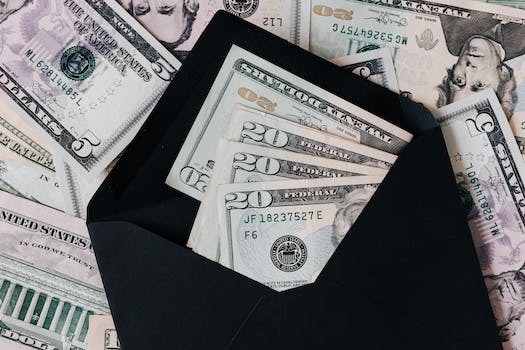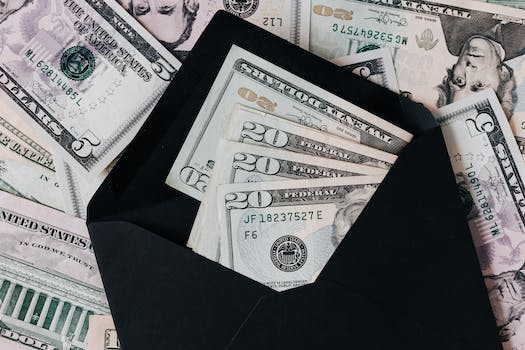How To Save Money While Buying A New Car
“Smart tips for saving big on your new car purchase.”
Introduction
Introduction: Buying a new car can be an exciting experience, but it can also be a costly one. However, there are ways to save money while still getting the car you want. In this article, we will discuss some tips on how to save money while buying a new car.
Negotiating Tips for Buying a New Car
Buying a new car can be an exciting experience, but it can also be a costly one. However, with the right negotiating tips, you can save money while still getting the car of your dreams. Here are some tips to help you negotiate the best deal when buying a new car.
1. Do Your Research
Before you even step foot in a dealership, it’s important to do your research. This means researching the make and model of the car you want, as well as the average price range for that car. You can use websites like Kelley Blue Book or Edmunds to get an idea of what the car is worth. This will give you a good starting point for negotiations.
2. Know Your Budget
It’s important to know your budget before you start negotiating. This means knowing how much you can afford to spend on a car, as well as how much you’re willing to pay for the car you want. This will help you stay within your budget and avoid overspending.
3. Be Prepared to Walk Away
One of the most important negotiating tips is to be prepared to walk away. If the dealership isn’t willing to meet your price, don’t be afraid to walk away. There are plenty of other dealerships out there, and you may be able to find a better deal elsewhere.
4. Negotiate the Price, Not the Monthly Payment
When negotiating, it’s important to focus on the price of the car, not the monthly payment. Dealerships may try to lure you in with a low monthly payment, but this can often lead to a longer loan term and higher overall costs. Instead, negotiate the price of the car and then work out the financing details.
5. Don’t Be Afraid to Ask for Extras
When negotiating, don’t be afraid to ask for extras. This could include things like free oil changes, a warranty extension, or even a discount on accessories. Dealerships may be willing to throw in extras to close the deal, so it’s worth asking.
6. Be Polite and Professional
When negotiating, it’s important to be polite and professional. This means avoiding aggressive tactics or insults, and instead focusing on finding a mutually beneficial solution. Remember, the salesperson is just doing their job, so treat them with respect.
7. Consider Timing
Timing can also play a role in negotiations. For example, if you’re buying a car at the end of the month, the dealership may be more willing to negotiate to meet their sales quota. Similarly, buying a car at the end of the model year may result in discounts as dealerships try to clear out inventory.
In conclusion, negotiating the best deal when buying a new car requires research, preparation, and a willingness to walk away if necessary. By focusing on the price of the car, being polite and professional, and considering timing, you can save money while still getting the car of your dreams.
Researching Car Prices and Deals

Buying a new car can be an exciting experience, but it can also be a costly one. However, with a little bit of research and effort, you can save money while still getting the car of your dreams. In this article, we will discuss how to research car prices and deals to help you save money on your next car purchase.
The first step in researching car prices and deals is to determine your budget. This will help you narrow down your options and avoid overspending. You can use online tools such as car payment calculators to determine how much you can afford to spend on a car. Once you have a budget in mind, you can start looking for cars that fit within your price range.
Next, you should research the make and model of the car you are interested in. Look for reviews and ratings from reputable sources such as Consumer Reports and Edmunds. These sources can provide valuable information about the reliability, safety, and overall quality of the car. You can also check out online forums and social media groups to see what other people are saying about the car.
Once you have narrowed down your options, it’s time to start looking for deals. One of the best ways to save money on a new car is to negotiate the price with the dealer. You can use online resources such as Kelley Blue Book and TrueCar to determine the fair market value of the car. Armed with this information, you can negotiate with the dealer to get a better price.
Another way to save money on a new car is to take advantage of manufacturer incentives and rebates. Many car manufacturers offer cash back or low-interest financing deals to entice buyers. You can check the manufacturer’s website or ask the dealer about any current incentives or rebates that may be available.
You can also save money by timing your purchase. Car dealerships often have sales events at the end of the year or during holiday weekends. By waiting for these events, you may be able to get a better deal on a new car. Additionally, buying a car at the end of the month or quarter can also work in your favor, as dealers may be more willing to negotiate to meet their sales quotas.
Finally, don’t forget to consider the cost of ownership when researching car prices and deals. The cost of ownership includes factors such as fuel economy, insurance rates, and maintenance costs. A car with a lower purchase price may end up costing you more in the long run if it has high maintenance costs or poor fuel economy.
In conclusion, researching car prices and deals is an important step in saving money on a new car. By determining your budget, researching the make and model, negotiating with the dealer, taking advantage of incentives and rebates, timing your purchase, and considering the cost of ownership, you can save money while still getting the car of your dreams. Happy car shopping!
Financing Options for a New Car Purchase
Buying a new car can be an exciting experience, but it can also be a costly one. With the average price of a new car hovering around $37,000, it’s important to consider your financing options to ensure you’re getting the best deal possible. Here are some tips on how to save money while buying a new car.
First and foremost, it’s important to do your research. Before you even step foot in a dealership, take the time to research the make and model of the car you’re interested in. Look up the average price for that car and compare it to other similar models. This will give you a good idea of what you should be paying for the car.
Once you have an idea of what you should be paying, it’s time to consider your financing options. One option is to finance through the dealership. While this may seem like the easiest option, it’s important to remember that dealerships make money off of financing. This means that they may not always offer you the best interest rate or terms.
Another option is to finance through a bank or credit union. This can often result in a lower interest rate and better terms. It’s important to shop around and compare rates from different lenders to ensure you’re getting the best deal possible.
If you have good credit, you may also be able to qualify for a 0% financing offer from the manufacturer. While this may seem like a great deal, it’s important to read the fine print. Often, these offers require a large down payment or shorter loan terms, which can result in a higher monthly payment.
Another way to save money while buying a new car is to consider leasing. While leasing may not be the best option for everyone, it can often result in a lower monthly payment and lower upfront costs. It’s important to remember that when you lease a car, you’re essentially renting it for a set period of time. This means that you’ll have to return the car at the end of the lease term and may be subject to additional fees if there is excessive wear and tear.
Finally, it’s important to negotiate. Don’t be afraid to haggle with the dealership to get the best deal possible. Remember, the sticker price is often just a starting point. Be prepared to walk away if you’re not getting the deal you want.
In conclusion, buying a new car can be a costly endeavor, but there are ways to save money. By doing your research, considering your financing options, and negotiating, you can ensure that you’re getting the best deal possible. Remember, a little bit of effort upfront can result in big savings in the long run.
Considering Used Cars as an Alternative
Buying a new car can be an exciting experience, but it can also be a costly one. If you’re looking to save money while still getting a reliable vehicle, considering used cars as an alternative is a great option. In this article, we’ll explore the benefits of buying a used car and provide tips on how to find the best deal.
One of the biggest advantages of buying a used car is the cost savings. Used cars are typically much cheaper than new cars, and you can often find a vehicle that’s only a few years old for a fraction of the cost of a new one. Additionally, used cars have already gone through the initial depreciation period, which means that you won’t lose as much value if you decide to sell the car in the future.
Another benefit of buying a used car is that you have a wider selection to choose from. When you’re shopping for a new car, you’re limited to the current year’s models and the options that are available. With used cars, you can choose from a variety of makes and models, and you can often find vehicles with features that are no longer available on new cars.
When you’re considering buying a used car, it’s important to do your research. Start by determining your budget and the type of vehicle you’re looking for. You can then use online resources to search for used cars in your area that meet your criteria. Websites like Carfax and AutoTrader allow you to search for used cars based on make, model, year, and price range.
Once you’ve found a few cars that you’re interested in, it’s important to do a thorough inspection before making a purchase. Take the car for a test drive and pay attention to how it handles, how it sounds, and how it feels. Look for any signs of wear and tear, such as rust, dents, or scratches. You should also have a mechanic inspect the car to ensure that there are no major issues that could be costly to repair.
When you’re negotiating the price of a used car, it’s important to be prepared. Do your research on the value of the car and be willing to walk away if the seller isn’t willing to negotiate. You should also be prepared to pay for any repairs or maintenance that the car may need in the future.
In addition to buying a used car, there are other ways to save money when purchasing a vehicle. One option is to consider leasing a car instead of buying one. Leasing allows you to drive a new car for a lower monthly payment than you would have with a traditional car loan. However, it’s important to keep in mind that you won’t own the car at the end of the lease, and there may be restrictions on how many miles you can drive.
Another option is to consider buying a certified pre-owned car. These vehicles have been inspected and certified by the manufacturer, and often come with a warranty. While certified pre-owned cars are typically more expensive than regular used cars, they offer additional peace of mind and may be a good option if you’re looking for a reliable vehicle.
In conclusion, buying a used car is a great way to save money while still getting a reliable vehicle. By doing your research, inspecting the car thoroughly, and negotiating the price, you can find a great deal on a used car that meets your needs and fits your budget. Additionally, considering leasing or buying a certified pre-owned car may also be good options to explore. With a little bit of effort and patience, you can find the perfect car at a price that you can afford.
Timing Your Purchase for Maximum Savings
Buying a new car can be an exciting experience, but it can also be a costly one. However, with a little bit of planning and research, you can save money on your new car purchase. One of the most effective ways to save money is by timing your purchase for maximum savings.
Timing your purchase for maximum savings means buying a car at the right time of year, month, or even day. Here are some tips to help you save money on your new car purchase.
Buy at the End of the Month
If you’re looking to save money on your new car purchase, consider buying at the end of the month. Car dealerships have monthly sales quotas to meet, and they may be more willing to negotiate on price at the end of the month to meet their goals. This is especially true if the dealership is close to meeting their sales quota but needs a few more sales to reach it.
Buy at the End of the Model Year
Another way to save money on your new car purchase is by buying at the end of the model year. Car manufacturers typically release new models in the fall, which means dealerships are looking to clear out their inventory of the previous year’s models. This can lead to significant discounts on the previous year’s models, making it a great time to buy.
Buy During a Holiday Sale
Holiday sales are another great time to save money on your new car purchase. Dealerships often offer special promotions and discounts during holiday weekends, such as Memorial Day, Labor Day, and Black Friday. These sales can lead to significant savings on your new car purchase.
Buy on a Rainy Day
Believe it or not, buying a car on a rainy day can also save you money. When it’s raining, fewer people are out shopping for cars, which means dealerships may be more willing to negotiate on price to make a sale. Additionally, rain can make it harder for dealerships to showcase their cars, which can lead to them wanting to move inventory quickly.
Buy at the End of the Day
If you’re looking to save money on your new car purchase, consider buying at the end of the day. Salespeople may be more willing to negotiate on price at the end of the day, especially if they haven’t made many sales that day. Additionally, buying at the end of the day can help you avoid the crowds and long wait times that often come with buying a car during peak hours.
In conclusion, timing your purchase for maximum savings can help you save money on your new car purchase. Whether you’re buying at the end of the month, end of the model year, during a holiday sale, on a rainy day, or at the end of the day, there are plenty of opportunities to negotiate a better price. By doing your research and being patient, you can save money on your new car purchase and drive away with a great deal.
Conclusion
Conclusion: Saving money while buying a new car requires research, negotiation skills, and patience. It is important to set a budget, consider financing options, and shop around for the best deals. Additionally, taking advantage of incentives and discounts, as well as considering a used car or leasing, can also help save money. By following these tips, individuals can make a smart and cost-effective decision when purchasing a new car.





